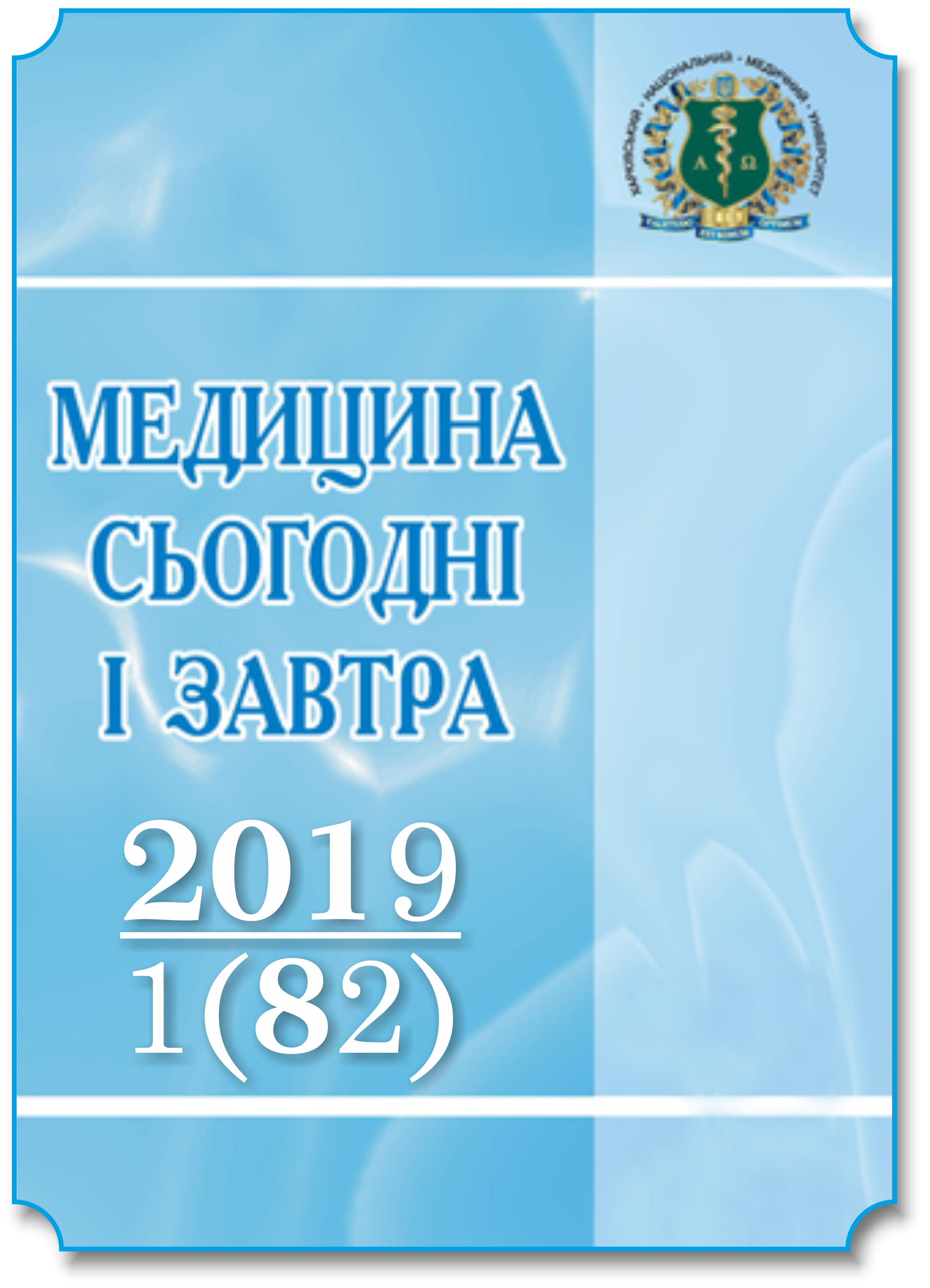Анотація
Обстежено 157 пацієнтів із серцевою недостатністю (СН) – перенесеним інфарктом міокарда, у яких визначали предиктори несприятливого перебігу захворювання залежно від тиреоїдного статусу. При госпіталізації проведено стандартизоване оцінювання стану, визначено показники внутрішньосерцевої гемодинаміки, клінічного й біохімічного аналізів крові, рівні гормонів щитоподібної залози. Установлено, що ризик повторної госпіталізації хворих на СН із приводу декомпенсації захворювання зростає за перевищення оптимальної точки поділу для сироваткового рівня вільного трийодтироніну ≤ 2,07 пмоль/л. Відносний ризик повторної госпіталізації хворих із СН протягом 2 років при рівні вільного трийодтироніну ≤ 2,07 пмоль/л становить 2,224 [1,363–3,630] (p<0,05). За допомогою автоматичного регресійного аналізу побудовано модель повторної госпіталізації пацієнтів із СН у зв’язку з декомпенсацією захворювання протягом 2 років. До неї ввійшли такі показники: маса тіла, рівень вільного трийодтироніну, наявність нетоксичного зобу, рівні холестерину ліпопротеїдів низької щільності й загального холестерину, відносний вміст гранулоцитів у крові, концентрація вільного тироксину. За даними ROC-аналізу, ризик розвитку повторної госпіталізації хворих із СН у зв’язку з декомпенсацією захворювання зростає при перевищенні оптимальної точки поділу для значення рівняння регресійної моделі ≥ 1,321 ум. од. У зв’язку з тим що зниження сироваткового рівня трийодтироніну впливає на перебіг СН, можна припустити доцільним використання його значення ≤ 2,07 пмоль/л як предиктора несприятливого перебігу захворювання.
Посилання
Hamilton M.A., Stevenson L.W., Luu M., Walden J.A. (1990). Altered thyroid hormone metabolism in advanced heart failure. J. Am. Coll. Cardiol., vol. 16 (1), pp. 91–95.
Kozdag G., Ural D., Vural A., Agacdiken A., Kahraman G., Sahin T. et al. (2005). Relation between free triiodothyronine / free thyroxine ratio, echocardiographic parameters and mortality in dilated cardiomyopathy. Eur. J. Heart Fail., vol. 7 (1), pp. 113–118.
Opasich C., Pacini F., Ambrosino N., Riccardi P.G., Febo O., Ferrari R. et al. (1996). Sick euthyroid syndrome in patients with moderate-to-severe chronic heart failure. Eur. Heart J., vol. 17 (12), pp. 1860–1866.
Passino C., Pingitore A., Landi P., Fontana M., Zyw L., Clerico A. et al. (2009). Prognostic value of combined measurement of brain natriuretic peptide and triiodothyronine in heart failure. J. Card. Fail., vol. 15 (1), pp. 35–40, DOI 10.1016/j.cardfail.2008.08.008.
Pingitore A., Landi P., Taddei M.C., Ripoli A., L’Abbate A., Iervasi G. (2005). Triiodothyronine levels for risk stratification of patients with chronic heart failure. Am. J. Med., vol. 118, pp. 132–136, DOI 10.1016/j.amjmed.2004.07.052.
Rudik Yu.S., Pivovar S.N., Biletskaia O.M. (2013). Kardioprotektivnyie mekhanizmy hormonov shchitovidnoi zhelezy [Cardioprotective mechanisms of thyroid hormones]. Ukrainskyi terapevtychnyi zhurnal – Ukrainian Therapeutic Journal, № 3, pp. 95–102 [in Russian].
Ponikowski Р., Voors А.А., Anker S.D., Bueno H., Cleland J.G.F., Coats A.J.S. et al. (2016). ESC Guidelines for the diagnosis and treatment of acute and chronic heart failure 2016. The Task Force for the diagnosis and treatment of acute and chronic heart failure of the European Society of Cardiology (ESC) developed with the special contribution of the Heart Failure Association (HFA) of the ESC. European Heart J., vol. 37 (27), pp. 2129–2200, DOI 10.1093/eurheartj/ehw128.
Rothberger G.D., Gadhvi S., Michelakis N., Kumar A., Calixte R., Shapiro L.E. (2017). Usefulness of serum triiodothyronine (T3) to predict outcomes in patients hospitalized with acute heart failure. Am. J. Cardiol., vol. 119 (4), pp. 599–603, DOI 10.1016/j.
Xue C., Bian L., Xie Y.S., Yin Z.F., Xu Z.J., Chen Q.Z. et al. (2017). Low fT3 is associated with diminished health-related quality of life in patients with acute coronary syndrome treated with drug-eluting stent: a longitudinal observational study. Oncotarget, vol. 8 (55), pp. 94580–94590, DOI 10.18632/ oncotarget.21811.
Danzi S., Klein I. (2014). Thyroid disease and the cardiovascular system. Endocrinol. Metab. Clin. North Am., vol. 43, pp. 517–528, DOI 10.1089/105072502760143836.
Gerdes A.M., Ojamaa K. (2016). Thyroid hormone and cardioprotection. Compr. Physiol., vol. 6 (3), pp. 1199–1219, DOI 10.1002/cphy.c150012.
Tomohiro Hayashi, Takuya Hasegawa, Hideaki Kanzaki, Akira Funada, Makoto Amaki, Hiroyuki Takahama et al. (2016). Subclinical hypothyroidism is an independent predictor of adverse cardiovascular outcomes in patients with acute decompensated heart failure. ESC Heart Fail., vol. 3 (3), pp. 168–176, DOI 10.1002/ehf2.12084.
Gao R., Liang J.-H., Wang L., Zhu H.Y., Wu W., Wu J.Z. et al. (2017). Low T3 syndrome is a strong prognostic predictor in diffuse large B cell lymphoma. British Journal of Haematology, vol. 177 (1), pp. 95–105, DOI 10.1111/bjh.14528.
Shanoudy H., Soliman A., Moe S. (2001). Early manifestations of «sick euthyroid» syndrome in patients with compensated chronic heart failure. J. Card. Fail., vol. 7 (2), pp. 146–152, DOI 10.1054/jcaf.2001.24665.

